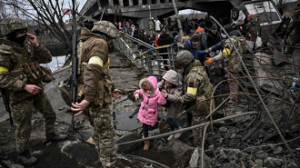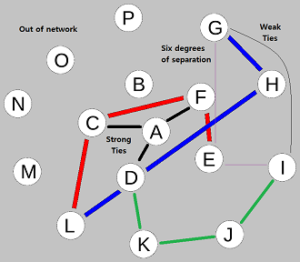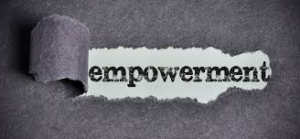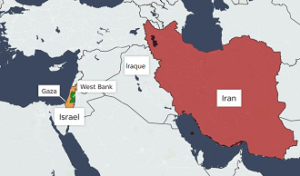
The sense of the big and the new
Presenting something Big and New worthy of the idea does not mean creating something new and forming a bubble with it, it means some minimal sign of originality, it should be noted that the term does not dispense with the origin, and means something that actually brings a positive transformation.
idea does not mean creating something new and forming a bubble with it, it means some minimal sign of originality, it should be noted that the term does not dispense with the origin, and means something that actually brings a positive transformation.
The continent of Old Europe is in crisis, and it is difficult to admit this, and the war does not represent the new but rather the old imperial conquest, the looting of neighboring peoples and the lying narratives that hide imperialism.
Sloterdijk establishes some requirements for a current politician: “Profession: politician. Main residence: opacity. Program: belonging. Moral: small challenge jobs. Passion: having a relationship with the absence of relationship. Evolution: self-recruitment based on knowledge, which becomes initiative” (Sloterdijk, 1999, p. 65).
Perhaps the opacity, lack of transparency and diffuse and even contradictory speeches depending on the occasion are clear, the program is clear, affirmation of one’s personality and the recruitment of equals, morality is not anything that requires challenge, and good morality is not Another thing, often the ability to suffer and give oneself for others and in fact, for the people.
In 1999 Sloterdijk ruled: “it is evident that at a time when the form of the great is changing, pathologies of affiliation of all kinds become epidemic… the oldest state athletics has already had to deal with the limits of its power of generalization…” (page 66).
In the book “The new science of networks” Laszlo Barabasi writes a very important example, without the persecutor of Christians Saul, who, after having a mystical experience, leaves the Jewish bubble and goes to the Greek and then the Roman world, Christianity would still be today a sect, and today he seems to return to it for lack of an open spirit.
Saul, now Paul will not fight on the front lines of the empire but rather bring a new spirit to the Roman imperial kingdom and will be persecuted by this spirit and not for using any type of weapon, and announce the kingdom of peace.
In Acts of the Apostles 9:31, after a re-presentation of Paul to the Christian community that feared him, it is said: “The Church, however, lived in peace throughout Judea, Galilee and Samaria”, and finally Paul fights the good fight: without wars, accusations or intolerance.
Pre-occupation and pre-concepts
It’s not about playing with words, they have a clear meaning without the hyphen, issues that occupy our mind and become challenging, and prejudices when socially and structurally stimulated put people, individuals, ethnicities and peoples into discredit.
meaning without the hyphen, issues that occupy our mind and become challenging, and prejudices when socially and structurally stimulated put people, individuals, ethnicities and peoples into discredit.
However, there is another meaning for those who care about mental health and social health, where it is possible to live with difference, with the Other and with the contradictory, this is spiritual health, in the sense of making the spirit resist a hostile environment.
The objective of leaving a person in discredit through prejudice cannot be confused with the intolerance and lack of love of the pre-concept present in the structure of dualistic thought: subject x object, natural x cultural, body x mind, in which resides a good part of the resistance to dialogue and openness to the different Other.
Some authors consider that prejudice as discrimination (Erving Goffman for example) is more relevant than the stereotype made about certain individuals, but these authors also understand that there are anti-dogmatic characteristics that can articulate the relationship between prejudice, stigma and discrimination (Goffman himself does this).
From the perspective that the pre-concept is interesting to man and his perception of truth (Gadamer, 1997), the way of conceiving and understanding reality regarding a given phenomenon must first go through a pre-understanding or pre- concept of this same phenomenon, that is, we hardly go to reality without any concept about it, for this we need a phenomenological epoché, says good phenomenology.
I say this before pre-occupation, because in general a large part of natural and existential phenomena pass through a prejudiced filter, in the sense of pre-understanding, and thus the knot and veil over reality is established, an attitude is needed to go forward, letting the occupation (and not its pre-establishment) acquire the right place in due time.
Hope (and for those who believe it is faith) enters this vacuum between the two stages, the pre-occupation that may be surrounded by preconceptions of reality, and the truth established by the phenomenon itself, some will think the fact, but the phenomenon or the thing in itself, is its own and the fact always depends on a narrative subject to preconception.
In short, don’t worry too soon, let the phenomenon and reality speak for itself at the exact time of your “occupation” or in ontological terms of your “presence”, your da-sein.
GADAMER, H.G. (1997) Verdade e método. Tradução Flávio Paulo Meurer. 3ª. ed. Petrópolis, Brazil (RJ): Vozes.
The return to the nations and the absence of the Whole
In a time of hypercommunication, social media makes one feel the absence of the Whole, which Peter Sloterdijk calls the Big: “the form of the big in the industrial world insists on the well-known megalopathic stress in expanded dimensions – but then the people on the street must worry, who previously would have supported a Minister of Foreign Affairs” (Sloterdijk, 1999, p. 61), what he did not imagine was that this would have the opposite reaction: the return of patriotism.
makes one feel the absence of the Whole, which Peter Sloterdijk calls the Big: “the form of the big in the industrial world insists on the well-known megalopathic stress in expanded dimensions – but then the people on the street must worry, who previously would have supported a Minister of Foreign Affairs” (Sloterdijk, 1999, p. 61), what he did not imagine was that this would have the opposite reaction: the return of patriotism.
However, only unexpected forces realized this effect, while today’s society: “suffering bouts of nausea in the face of its political class, at the moment cannot do more than grant a pause for reflection on fundamental questions” (p. 62).
The author notices the lack of “something”, the emphasis is his, but prefers to “interpret it as the spirit of the agrarian age” and the great empires (pg. 60), and in his agnostic vision, “for her came the critical moment with the “death of God” “ (idem), again the emphasis is on the author.
Thus in the absence of an eschatological figure, in a world that rejects the idea of the sacred, the divine and a human-divine God of Christians, “the form of the Great is changed, filiation pathologies of all kinds become epidemic” (pg . 66), not only in politics, but also in religion, everyone believes they have found a “great one” and heretically places him in the place of God, even in religions an imaginary god of wealth, leisure and even lust, however contradictory it may be. as it may seem.
The book from the end of the last millennium, understands the problem right but in the wrong place, under the theme of “conservative revolution” (a new highlight from the author) it is experienced “two or three generations ago in the Catholic resistance movements in central Europe and the south, probably a great intercultural career ahead – under a religious, culturalist, regionalist banner” (pg. 67).
Returns to a correct analysis: “in the Great modern – the quasi-religious state-national identities that since the 19th century have marked political forms of life in Europe and later throughout the world” (idem), remember Nazism and now in several forms of “national” wars.
The modern phenomenon of this Great One, of the great homeland whether in Israel or Russia, in China or the USA, is nothing other than the absence of a Great Greater, the divine one that leads men to break borders, to live with what is different and to understand the need for a new civilization that sees the planet as a Homeland.
For the great religious man, one may ask where God is, but the divine-historical figure of Jesus and his beyond-Abrahamic vision that surpasses that of these conflicting peoples, proclaimed a universal motto: “Whoever has seen Me has seen Him who sent Me ” (John 12:45).
The political animal and the ontological being
We imagine from most narratives that Greek politics is
a great model for contemporary society, but Sloterdijk’s correction is as accurate as possible: “The truth about the form of the world imagined by Plato and Aristotle is certainly that city and empire they are figures of the agrarian era” (Sloterdijk, 1999, p. 43).
It is difficult to believe, however, “if Plato defined political knowledge as a pastoral art in reference to featherless bipeds, then it is clear how agro-ontological motives advanced even in the fundamental definition of the essence of power in cities – agriculture and animal husbandry are the reservoirs of contemplation, from which political discourses must draw their plausibility, even if the gaze passes from the garden of the academy to the agora” (pg. 44).
The importance escapes even Sloterdijk, since in modern industrialized European society the “peasant experience” that even Heidegger blames is so, and the “extra-agrarian motives” came “from the workshops of artisans, namely blacksmiths, to advance in the consciousness of the political-philosophical world, and of the ports, a commander, in Greek kybernetes, could become a suggestive figure of power” (page 44).
Coexistence with nature is also resumed in Sloterdijk and his disciple Chul-Han: “it has always been a risk for the city that it uses more than creates man; more than that, it drives him to the last flowerings like reproductions that are too simple; in both the biological and cultural sense, it is more greenhouse than field or garden” (page 45).
Before the development of Chul-Han’s psychopolitics, it can already be found in Sloterdijk: “dominators, politicians and bosses are, according to this logic, above all detonators of functional cruelty – which they obviously do well to create for themselves, under names like reason of state, common good, justice, planning, among others, an acceptable face, if possible sincere” (page 47).
Sloterdijk develops here the true concept of “humanity” “breaks down here into groups that intensify through tensions, and groups that become stagnant in suffering, pain, in the great civilization, acquires a terrible double face; it acts in some as a stimulator, in others as an obstructer; for the minority, lack has an educational effect; for the majority, it acts as a destroyer of souls” (page 48), it is worth clarifying that Sloterdijk is not religious.
To conclude this post, she detects contemporary illness: “the intimate strangeness of master and servant now links them” (page 48) and “the paradox of exclusive inclusivity then takes its toll; people begin to hunt people, kill them in large numbers, exterminate entire hordes and tribes, sell and buy them… “ (page 49).
We have not yet moved far away from Zoom, the exclusivities and non-inclusivities are there.
SLOTERDIJK, Peter. 1999. No mesmo barco: ensaio sobre hiperpolítica (In the same boat: essay on hyperpolitics). Trans. Claudia Cavalcanti. Brazil, São Paulo: Estação Liberdade.
Hyperpolitics and war
When Peter Sloterdijk wrote “All in the same  boat: essay on hyperpolitics” we were on the threshold of the third millennium, Manuel Castells was writing Sociedade em Rede and Edgar Morin was writing about Cabeça Bem done, rethinking reform, reforming thought, they were attempts to wake up and make humanity move towards a less dark future.
boat: essay on hyperpolitics” we were on the threshold of the third millennium, Manuel Castells was writing Sociedade em Rede and Edgar Morin was writing about Cabeça Bem done, rethinking reform, reforming thought, they were attempts to wake up and make humanity move towards a less dark future.
Sloterdijk also wrote “If Europe awakens”, he calls it the Empire of the Center and pays attention to its colonialist past and the need for a new future and rethinks war, a topic so linked in the country that triggered the Second World War.
These are all thoughts that tried to redirect a dark future from the possibility of a new war. In Everyone in the Same Boat, Peter Sloterdijk revisits the political project that was born in classical antiquity, the attempt to organize the State, and says: “How can they “talk” to such large numbers of people and convince them to feel like they are participating in what is “great” – until they reach the willingness to face death in exercises of millions against forces of equal order of magnitude, in order to assure “their own “successors what ideologues call the future” (Sloterdijk, 1999, p. 31).
Contrary to the optimism of Castells and Morin, not only justifiable, but desirable, of a more civilized and humane future, Sloterdijk warns that this connected hypersphere, see that social media were just nascent for these three great thinkers, was for the German, a dangerous future of hyperpolitics.
“The first gestures of this instinctive holism are attempts to describe the cosmos as a larger house and people as larger families” (Slotertijk, p. 32), and adds that in fact, “homo politicus and homo methaphysicus belong together historically; promoters of the State and prospectors of God are evolutionary twins” (Sloterijk, p. 33), of course it is not the view of everyone, much less of men in power, the great statesmen who think in this holism no longer exist and now it is the empire of force and monolithic, authoritarian and hateful thinking.
The Greeks’ political project for him can be called “metallomaniac”, but he warns that this is the man who “meddles in big, bigger issues to have something that he will look at and then abandon. But should they call those who, once they have grasped great things, will never abandon them? I propose megalopaths” (page 34).
Also great empires: the Persian, the Roman, the Mongols who came to dominate half of Europe, the Turkish-Ottoman and more recently Napoleon and the “forgotten” colonies in Africa that were nothing more than an extension of the Central Empire, as Sloterdijk calls it the Europe.
“State Humanism has since been the search for a fair center – and since the Roman reception of this Greek idea, this search has carried its name still known today: Humanity” (pages 35-36).
Sloterdijk questions this model of homo politicus, the “pontifex maximus”, “how do we become raja? How do we become Caesar? How do we become consul, senator, emperor? How must someone live to enter the history books like Metternich, Lord Morlborough or Bismark? (page 37).
The idea of politics as metanoia, this was the initial intention of Paideia for example, is no longer true in war, Sloterdijk quotes Goethe: “the man who does not suffer scourges cannot be educated”.
A power hidden in little ones
Throughout history, the layers of society that had no participation in power have been ignored, not in authoritarian regimes where this is evident, even though dictators enjoy some popularity due to their power of manipulation and use of force, the majority of society must and the The process becomes irreversible with access through social media, which can be networks.
have been ignored, not in authoritarian regimes where this is evident, even though dictators enjoy some popularity due to their power of manipulation and use of force, the majority of society must and the The process becomes irreversible with access through social media, which can be networks.
The power of weak ties, unknown to most manipulators and authoritarians, exists and even if subjected to a harsh regime, in the shadows and in informal media it ends up manifesting itself, however, the power of propaganda and mass media in the mainstream media was immense.
It is true that part of the so-called popular opinion is also subject to traditions and cultures of oppression and manipulation, it was so before, and now it can become perverse, but when used to promote the common good, equality and respect, it can be the only asymmetric force.
Oppression always presupposes a certain consent, by persuasion, by fear or by some circumstantial or historical convenience, but over time, it may take years, a true “public” opinion will prevail and the polarization of the imperial forces at play will weaken. .
How to recognize the wolf and the lamb in this game is simple, and the biblical parable explains it (John 10:12):
“The mercenary, who is not a shepherd
and does not own the sheep,
sees the wolf coming, abandons the sheep and runs away,
and the wolf attacks and scatters them.”
The shepherd knows the sheep and they listen to his voice, says another biblical passage, and he does not act with power, but as a protector and facilitator of the sheep’s path so they don’t get lost.
The strength of weak ties
The theory of networks, not in the focus of social media, but of the ties between actors has some curious properties and two are very special: the six degrees of separation and the strength of weak ties (Weak ties) that seem strange to those who are unaware the theory.
social media, but of the ties between actors has some curious properties and two are very special: the six degrees of separation and the strength of weak ties (Weak ties) that seem strange to those who are unaware the theory.
The six degrees of separation indicate that seen as networks, the relationships between social actors are, in reality, more connected than one imagines, and this is not just in the world of social media (which is incorrectly put equivalent with social networks).
A classic experiment, called the Milgram experiment due to the work of psychologist Stanley Milgram, who sent letters to certain distant people, and identified ties of personal knowledge existing between any two people, and discovered an average distance of 5.5 people to letters reach their destination.
The experiment had flaws, such as letters that were not sent forward and ended up in an intermediary and the lack of knowledge of the objective of certain people in the experiment, for example, not understanding that the letter should go as close to the final destination.
The weak ties experiment carried out by Mark Granovetter (1973) takes into account the weakest and most distant contacts in social networks, and can, in certain contexts, mean that the ties between two people who have similar interests are strong, even if they pass by some intermediary C, and this makes C also part of the strong loop.
So the weak tie will be just the opposite, A and B have distant interests and connection routes, which can mean different or just distant interests, however in network theory these ties are important for the functioning of the network and its dynamization, unlike the what common sense says.
What Granovetter researched is that the greater the strength of the bond between two people, the greater the chance that the circle of friends and ties will be common and that the message will only stay in that circle, not reaching other circles of relationships and expanding the network.
In this sense, limiting or banning social networks means reducing and making the social network (which is not necessarily done via the media) limited, however, there are networks that commit certain crimes and should not be legitimized and, when possible, banned.
This is discussed within the issue of power, because the theory of networks contradicts the idea of an increasingly stronger and centralized power as a solution to social problems, because even if prohibited, social networks continue to function as established by the theory of the six degrees of power. Separation and distance between actors is smaller than centralized power assumes, as it is often isolated in its social or ideological “bubble”.
Social networks dynamize the structures of social ties and ignoring them can be a source of empowerment for different social groups and helps to grow true popular will.
GRANOVETTER, Mark S. The Strenght of Weak Ties. The American Journal of Sociology, vol. 78, n. 6, p. 1360-1380, may 1973.
Arbitrary power and socialization
In his book “In the swarm: a digital perspective” Byung Chul-Han  clarifies that only a relationship is symmetrical (both sides have the same power or the same power) respect, if respect is lacking there is always an arbitrary exercise of power , but let’s look at other definitions.
clarifies that only a relationship is symmetrical (both sides have the same power or the same power) respect, if respect is lacking there is always an arbitrary exercise of power , but let’s look at other definitions.
A widely used one is that of Norberto Bobbio: “… every probability of imposing one’s will in a social relationship, even against resistance, whatever the basis of this probability (Weber, 1994, p.33), there is always the possibility of “manipulation”, use of reward, threat of punishment and other forms of asymmetry that favors force.
Generalizing the different forms of power, and contrary to Foucault (see the previous post), Lebrun says that power and domination go hand in hand, a person has power when the other is deprived of it, he puts them in the same boat: m Marx, Nietzsche, Weber , Raymond Aron, Wright Mills and others.
This conception comes from North American sociology known as “Zero Sum Theory”, a theory that dates back to Hobbes, which defined the power of the “sovereign” or the State, as being “one against all” and “in favor of all at the same time”. time”, but from top to bottom.
Thus, this power is simply applied as an obligation or prohibition to the dominated, passing through them and through them, in the same way, the dominated also use it and rely on it, but the dominated have subjectivity (in the ontological relationship it is dasein), and they produce new knowledge about power relations and also empower themselves. In this sense, it is important to relate power to potency, or capacity for action.
The concept of act and power in Thomas Aquinas is, however, more complete, because it is also related to truth, not temporal, but ontological, present in Being:
“[…]some things may be, although they are not, while others actually are. What can be (illud quod potest esse) is called potential being; what already is (illud quod iam est) is called being in act. However, being is double: the essential or substantial being of the thing, like being a man, is simply being; the other is being accidental, like the man being white; and that is being other.” (AQUINO, T, 1976, p. 39.)
Thus power is seen in another way, which is also matter and being complete, for Aquinas all are basic components of the substance, the notion of being complete is attributed both to the form that signifies the first act, the actuality, that the form possesses by itself and not by a mediator, when this first act is attributed to matter there will be an actuality, that which today is confused with virtuality (the potency or possibility of being), because in this way every being is in potency, in this way everyone can have power in order to realize its full potential.
This means that it is necessary to empower man, society and recover the disempowered, so re-education, resocialization and even those who are socialized are always possible.
Power, if exercised without arbitrariness and with the dimension of everyone, can and should serve the common good, justice and freedom.
AQUINO, T. (1976) De principiis naturae ad fratrem Sylvestrum, [ed. H.F. Dondaine]. Ed. Leon., t.XLIII, Opuscula, vol.IV. Roma [Santa Sabina]: Editori di san Tommaso.
LEBRUN, G.(1999) O que é poder. Brazil, São Paulo: Brasiliense.
WEBER, M. (1994) Economia e Sociedade. Brazil, Brasília – DF: Editora da Universidade de Brasília, 1994.
Power in Foucault and Chul-Han
Michel Foucault broke with the classical conceptions of the term power and defined it as a network of relationships where all individuals are involved, and we understand the network here with the modern sense of network, although it was vague in his time, individuals are both generators and recipients of power. movement of these relationships, however he identifies them as biopower, while Chul-Han identifies them as psychopower, and in a way adds the media to this.
conceptions of the term power and defined it as a network of relationships where all individuals are involved, and we understand the network here with the modern sense of network, although it was vague in his time, individuals are both generators and recipients of power. movement of these relationships, however he identifies them as biopower, while Chul-Han identifies them as psychopower, and in a way adds the media to this.
State ideology, born from Hegel, is the basis of every history of contemporary power, authoritarianism and modern wars were born from a new idea of imperialism and colonialism, in which stronger states control power not only through weapons, but rather through biopower and now psychopower.
Foucault’s biopower, the state is the first level of power (he calls it a sector), the market is the second level, and the third is civil society, the idea of 4th. The power of the press comes from there.
He studied power not to develop a theory about it, but to identify aspects of subjectivity (in ontology it would be the question of Being), that is, subject over other subjects.
This is important to differentiate him from Chul-Han, who starts from the ontological relationships between beings and identifies the action of media and media structures that act on the psychology of power, so his idea of power (What is power) is like a domination technique that stabilizes and reproduces the dominated system through programming and psychological control.
Foucault sees biopower, as in the body as a training machine, since biopolitics, in the middle of the 18th century, was focused on regulatory controls on the population, the idea being that it was the population increase that caused misery and hunger.
Peter Sloterdijk, who supervised Chul-Han’s doctoral thesis on Heidegger, argues that this “training” process failed and thus, the control process develops towards the fourth power, which Chul-Han focuses excessively on the media, forgetting the 4th. power of the press, TV and cinema that had an enormous influence.
He develops pathologies of self-centeredness (narcissism), emotional instability (borderline) as responses to the demands of a society intoxicated with demands for efficiency, appearance and disciplinary coercion, wrote the author):
“The violence of decapitation is inherent to the pre-modern society of sovereignty; its medium is blood. Modern disciplinary society is, to a large extent, a society of negativity, being governed and dominated by disciplinary coercion, that is, by ‘social orthopedics’. Its form of violence is deformation. But neither decapitation nor deformation are capable of describing the postmodern performance society. It is dominated by a violence of positivity, which confuses freedom and coercion. Its pathological manifestation is depression” (Han 2018, pp. 183-184).
HAN, Byung-Chul. (2018) Psicopolítica: o neoliberalismo e as novas técnicas de poder. Brazil, Belo Horizonte: Âyiné.
A piece in the chess of war
Since the fall of the monarchy in Iran, at the time Shah Reza Pahlavi, who was a traditional ally of the USA, the Islamic republic of Iran began to have hostility with the USA, which imposed sanctions because of the processing of uranium essential for nuclear bombs, making causing Iran to seek support and form alliances with Russia.
time Shah Reza Pahlavi, who was a traditional ally of the USA, the Islamic republic of Iran began to have hostility with the USA, which imposed sanctions because of the processing of uranium essential for nuclear bombs, making causing Iran to seek support and form alliances with Russia.
In 1st. April this year, Israel launched an attack on Syria (not assumed), killing Iranian generals, who have since promised retaliation and recently attacked Israel’s territory with drones and missiles, according to Rear Admiral Daniel Hagari, Israeli military spokesman: “it will launched more than 300 threats, and 99% were intercepted”, and concluded: “this is a success”.
Shortly before the news of the launch this Saturday (13/04), Israeli Prime Minister Benjamin Netanyahu said that “the defensive systems” are working, and that the IDF (Israel Defense Force), in a reprisal that was already As expected, the bombers continued yesterday (04/14).
As there are strong connections with Hezbollah and the Houthis to the south in Yemen and Hezbollah to the north in Lebanon there is also news of attacks on Israel, both the Israeli military command, the G7 and the UN security council have already called a meeting yesterday.
Italy and Germany have already spoken out against Iran, condemning the attacks, the USA and France helped intercept the missiles (it is reported that Jordan also helped the defense), so Iran is isolated in the West.
The objective at the moment is to prevent a larger scale attack on Iran, which would trigger an escalation of war in the region, Netanyahu must attack some targeted targets in Iran.
Russia has not commented so far, but it is a traditional ally of Iran, and the drones used in the attack on Israel are the same type as those used in the war in Ukraine.
Russian attacks continue to escalate in Ukraine with the main objective of depleting the country’s energy sources, the progressive fragility of the defense of Ukraine’s military forces makes the situation in the country, and to a certain extent in the NATO countries, quite dramatic.
Peace is always possible, what ethical forces call responsibility could play a decisive role in decision-making, as the leaders involved in the conflict increasingly seem not to understand the gravity of a conflict in the midst of a civilizational crisis.
After World War II, the forces in conflict understood the need for peace, now the worsening of the crisis, paradoxical as it may be, can make leaders call for peace.


